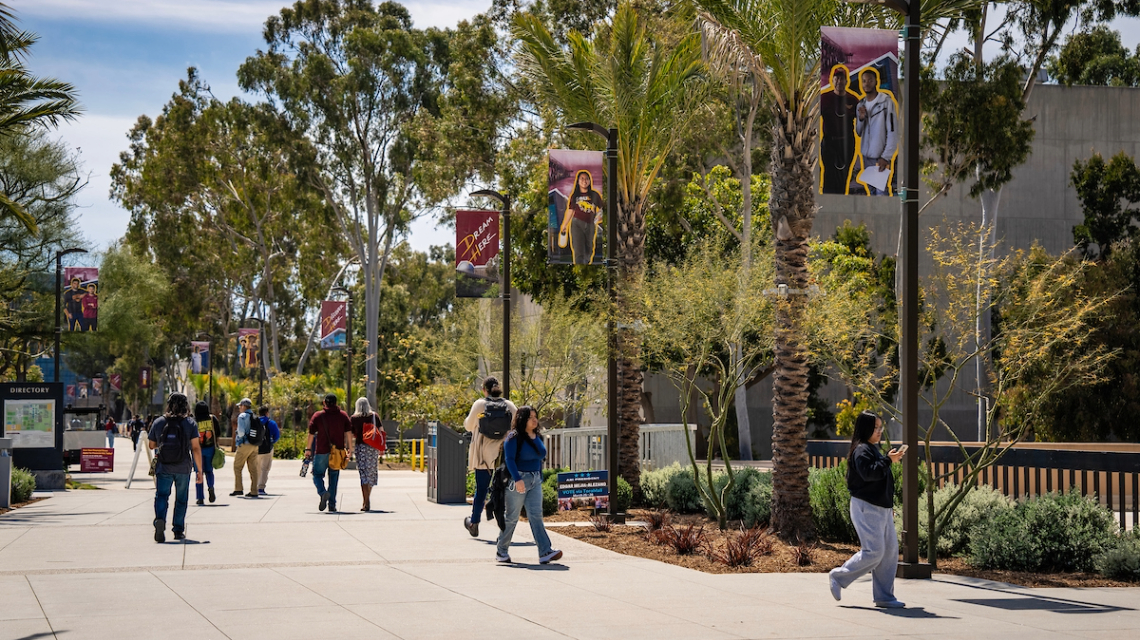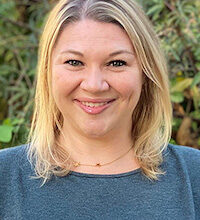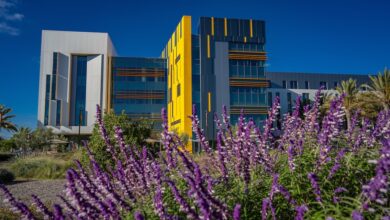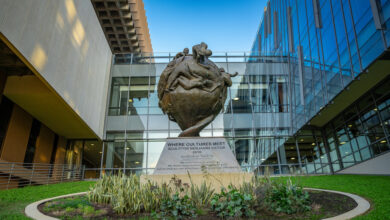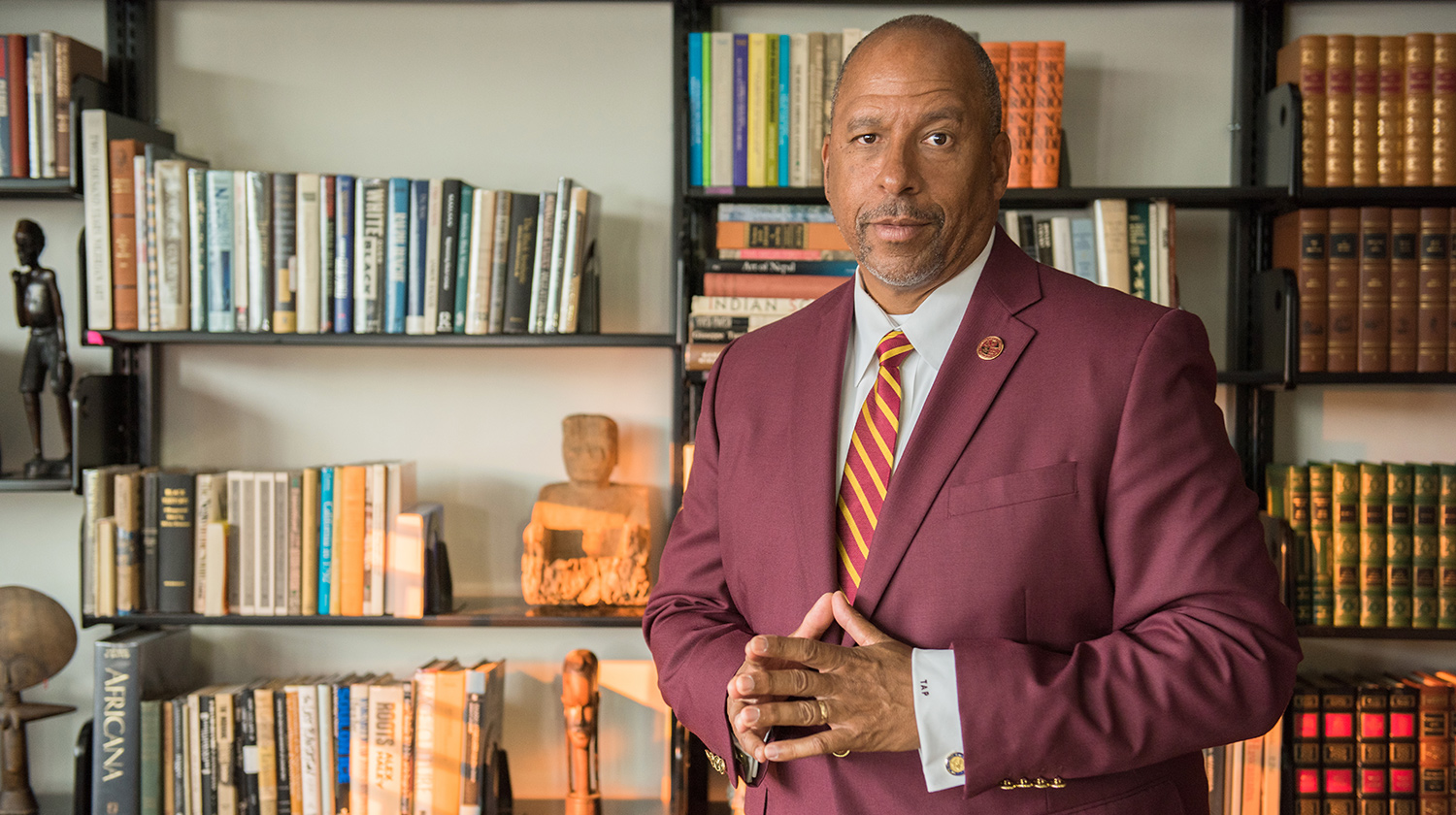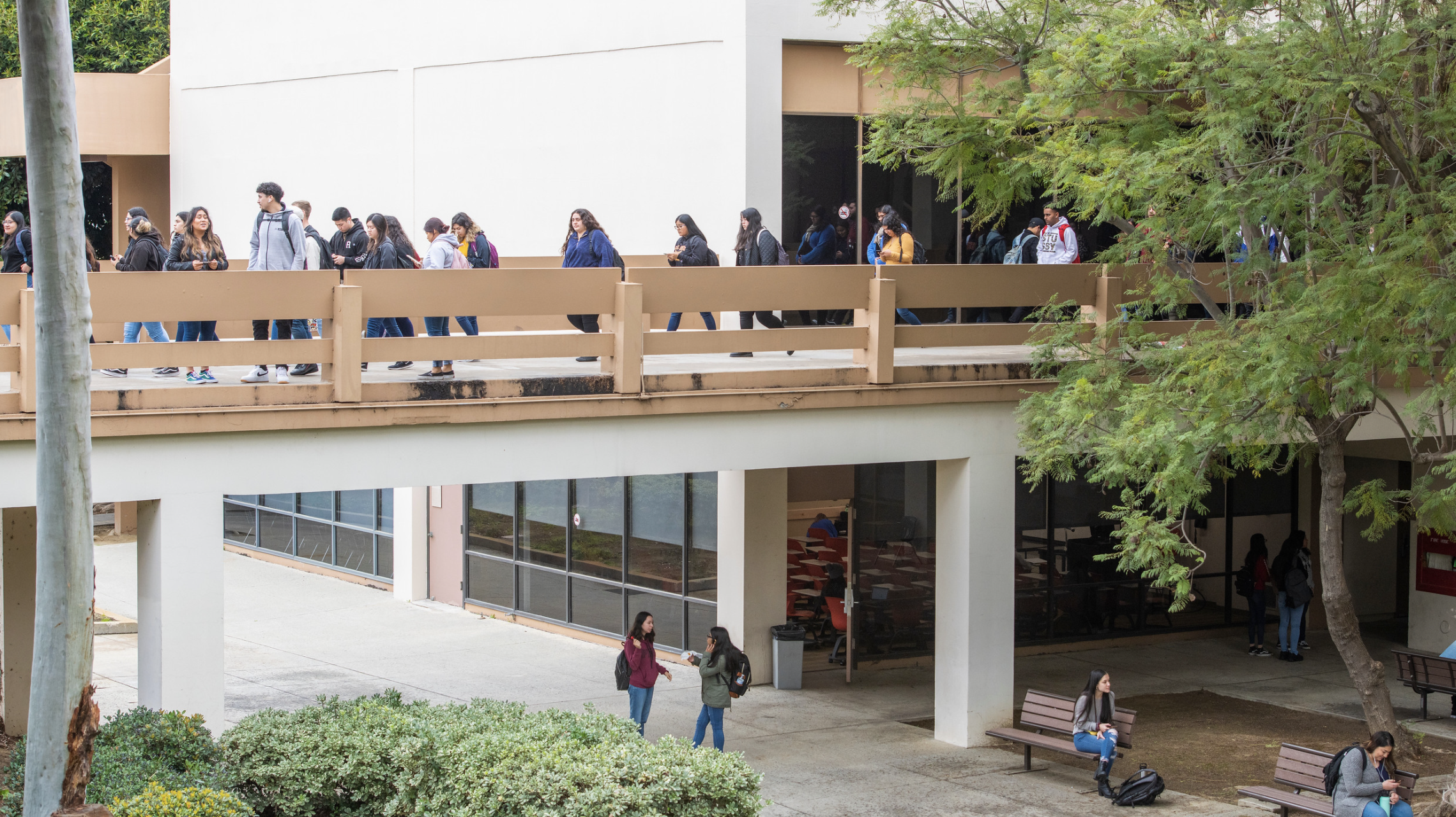 Source: LAist
Source: LAist
This story also appeared as a radio segment on KPCC.
Looking back on her college application experience, Yesenia Fernández remembers that when it came time to fill out her financial aid forms, she had to wrestle her social security card out of her mother’s hands. To cover the cost of standardized tests, she sold cakes around her neighborhood.
“My mom didn’t have money for that,” Fernández said. “Plus, she didn’t understand why it was a worthwhile investment.”
It wasn’t that her mom didn’t support her, she added. Growing up, her mother devoted her days off to volunteer at her school. With time, she became a fixture at parent meetings and school functions. Fernández’s mom had a sixth grade education. She wanted more for her daughter.
Still, there was a persistent disconnect between the futures they envisioned. Fernández went on to earn a doctorate in education. Along the way, her mother dutifully attended dean’s list ceremonies, graduations and her dissertation defense. She was proud of her daughter, but she was also perplexed. “Why are you still in school?” she repeatedly asked.
Fernández maintains that her mother has been a constant source of inspiration, someone who demonstrates what a community approach to education looks like. Her mother, who worked as a nurse’s aide at a convalescent home, would call her up and ask things like: “Hey, two ladies at work are having trouble with their kids, they’re asking about something called FAFSA. Do you know what that is?”
Fernández would share the information. Then, her mother – the same one who wouldn’t let go of the social security card out of fear that someone might rob her daughter’s identity – would take it to work to help her colleagues.
Today, Fernández is a professor at California State University, Dominguez Hills, where she works to improve the experiences of first-generation college students.
“I navigated the process, I survived,” she said. “But the trauma that’s involved with having to do that on your own is unnecessary. And we can change that.”
To this end, Fernández teamed up with her colleague, Jen Stacy, who is also a professor in the college of education. In April, they co-founded a Parent Leadership Academy at Cal State Dominguez Hills, where more than half of the students are the first in their families to go to college.
Every month, Fernández and Stacy facilitate Zoom meetings for members of the parent academy. To date, they’ve hashed out financial aid and job opportunities; campus COVID-19 protocols; how students can get meal cards; and why they should participate in extracurricular activities, among other topics.
The professors plan for each meeting in collaboration with the parents, who are vocal about what they’d like to learn next. Often, Fernández and Stacy capitalize on their ties to the university to bring in expert guest speakers. Mayra Soriano, who directs the academic prep program, Encounter to Excellence, joined the group in October.
At the meeting, concerned parents shared that they worried about their children’s prospective majors. In turn, she encouraged them to give their children space to explore possibilities before reaching a decision. Just before the holiday break, student leaders joined another session to inform parents about campus affinity groups.
Judy Marquez Kiyama, a professor at the Center for the Study of Higher Education at the University of Arizona whose research examines the structures that shape educational opportunities for underrepresented groups, lauded the academy for being parent-led.
“It’s not being determined by what the institutions think the parents want and need, but by what families are saying is important to them,” she said.
Parents, Translanguaging
At Cal State Dominguez Hills, the composition of the parent academy is varied: So far, about 50 people have signed up. Most are parents of children who would be the first in their families to earn a degree, but some are university alumni. And while most parents log in from neighboring cities, at least one mom joins from the East Coast.
The meetings are slated for an hour but tend to run longer. This, in part, is because of its bilingual nature. Fernández and Stacy, who are fluent in English and Spanish, serve as interpreters and make painstaking efforts to ensure that no one is left out of the conversation.
“We have people speaking fully in English, we have people speaking fully in Spanish, we have people translanguaging – and it’s completely accepted,” Stacy said.
Back when Fernández worked as a school administrator in southeast Los Angeles, she often launched parent outreach efforts with a potluck. At the gatherings, she’d introduce herself, then slide in information they might find useful.
Outreach efforts for the academy at Cal State Dominguez Hills were more complicated because of the pandemic, which has relegated sessions to Zoom. But working online is not all bad, the professors said. Using Zoom enables parents who might not otherwise be able to join feel connected to the campus, including those whose children who come from out of state.
As the academy continues to grow and evolve, Fernández and Stacy will encourage participants to take on leadership roles in other parts of campus, including speaking at upcoming orientations. Participants will also be the first to try out Toro Families, a pilot platform that will give them the option of receiving weekly, bi-weekly or monthly newsletters. Their feedback will be used to ensure that it’s useful for the wider parent community.
Building The Comadre Network
For the professors, it’s important that the academy continues to be a space “for parents and by parents,” Stacy said. She and her colleague beam when they see parents exchange numbers and plan carpools to drop off students on campus. They’re building what the professors refer to as “the comadre network,” a Spanish term usually reserved for godparents that, in this context, points to a shared investment in seeing students across the community thrive.
Lety Ojeda is one of those parents. She co-plans the Parent Learning Academy sessions with the professors and takes diligent notes to share with a friend who has two children at the university but isn’t able to join the sessions.
Ojeda was once a student at Cal State Los Angeles, where she worked toward becoming an elementary school teacher. But juggling a full time job, the commute and her coursework became too much to bear. With a heavy heart, she left the university without earning a degree.
Today, Ojeda is the mother of three sons, two of whom are navigating their undergraduate careers amid the pandemic. One is a student at Cal State Dominguez Hills, the other is a student at Cal State Long Beach. Her mission is to help them succeed.
“As a parent, I’ve always been pretty involved,” she said. “I like to know what’s going on. So, when [the Parent Learning Academy] came up, I was, like, ‘This is perfect.’”
Cal State Long Beach offers many resources for first-generation college students, including the TRiO and Migrant programs, which support students throughout their undergraduate journeys and help them navigate the grad school application process, complete with trips to universities outside of California. For Rafael Topete, the director of these efforts, it’s important that students explore opportunities beyond Long Beach.
The campus, however, doesn’t have an equivalent to Cal State Dominguez Hills’ parent academy.
(“If they did,” said Ojeda, “I would probably join it, too.”)
Even before the pandemic, said Topete, staffing changes and space limitations compelled the university to scale down on parent workshops, but this is something he wants to revive.
“An informed parent is a great ally,” he said. If a student is going through a challenging moment, for instance, a parent might be better equipped to help him address what’s happening before it gets worse. In other situations, family friction can be smoothed out simply by making parents aware of the workload their children take on at the college level.
“I’m a big proponent of involving the whole family,” he said, “because it is the whole family who’s going through the process.”
Why Creating Spaces For First Gen Parents Matters
At the college level, parent engagement is often limited to orientation and graduation, with the expectation that students, who are now adults, will navigate the space on their own.
But even if students cease to rely on their former caretakers for day-to-day support, the children of college graduates still have someone with insider knowledge as a resource.
Ultimately, said University of Arizona’s Kiyama, that kind of advantage “perpetuates hierarchies between families who have navigated these educational systems before and those who haven’t,” leading to gaps in opportunity and achievement. In 2018, the Department of Education’s National Center for Education Statistics found that first generation students are about two-and-a-half times more likely to quit than peers who have degree-holding parents.
“If we can keep [first-generation] families engaged in culturally responsive ways, we are likely to see increasing student outcomes around graduation,” Kiyama said.
For Stacy, family engagement is about transforming the university itself. “It’s not just that the student will be successful in the institution,” she said, “it’s that the institution will change and become a better space for all of our community members.”




